 November 2022 in “Journal of Education, Health and Sport”
November 2022 in “Journal of Education, Health and Sport” The skin's bacteria might influence the development of a hair loss condition called alopecia areata.
 November 2021 in “Dermatology Research and Practice”
November 2021 in “Dermatology Research and Practice” The study aims to understand the skin and hair characteristics of mothers and their babies, and how these may affect newborns' skin health and mothers' postpartum hair loss.
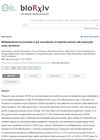 July 2019 in “bioRxiv (Cold Spring Harbor Laboratory)”
July 2019 in “bioRxiv (Cold Spring Harbor Laboratory)” Kashmiri women with PCOS have more Bifidobacterium in their gut.

Changes in skin bacteria can affect hair loss and new treatments targeting these bacteria may prevent balding without sexual side effects.
September 2022 in “Medical Mycology” Scalp fungi and sebum differences may affect hair loss in men.
220 citations,
May 2017 in “JAMA dermatology” Patients with hidradenitis suppurativa have a different skin microbiome compared to healthy people.
5 citations,
September 2022 in “Frontiers in Nutrition” Gut bacteria differences may help diagnose and treat Alopecia areata.
 4 citations,
April 2021 in “Experimental Dermatology”
4 citations,
April 2021 in “Experimental Dermatology” Antibiotics might affect hair growth by changing the bacteria in hair follicles.
 April 2018 in “Journal of Investigative Dermatology”
April 2018 in “Journal of Investigative Dermatology” Sensitive scalp has higher pH, more redness, abnormal sebum, and altered bacterial makeup.
July 2022 in “Journal of Investigative Dermatology” Skin bacteria help hair regrow by boosting cell metabolism.
11 citations,
November 2021 in “International journal of molecular sciences” Gut microbes significantly affect brain steroid levels.
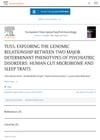 September 2021 in “European Neuropsychopharmacology”
September 2021 in “European Neuropsychopharmacology” The research explores how gut bacteria and sleep patterns are related in mental health disorders.
 3 citations,
January 2021 in “Actas Dermo-Sifiliográficas”
3 citations,
January 2021 in “Actas Dermo-Sifiliográficas” The document concludes that changing the scalp's microbiome might be a new way to treat hair loss.
 September 2021 in “Physiology News”
September 2021 in “Physiology News” The document concludes that more inclusive research involving the transgender community is needed, especially on the neovaginal microbiome of trans women.
 January 2020 in “Journal of The European Academy of Dermatology and Venereology”
January 2020 in “Journal of The European Academy of Dermatology and Venereology” In 2019, dermatology and venereology improved skin cancer imaging, advanced in treating skin conditions like psoriasis, and explored the skin microbiome's role in diseases.
 January 2016 in “Experimental Dermatology”
January 2016 in “Experimental Dermatology” New findings suggest potential treatments for melanoma, hyperpigmentation, hair defects, and multiple sclerosis, and show skin microbiome changes don't cause atopic dermatitis.
 156 citations,
August 2016 in “Journal of controlled release”
156 citations,
August 2016 in “Journal of controlled release” Tight junctions are key for skin protection and controlling what gets absorbed or passes through the skin.
 78 citations,
October 2020 in “Experimental Dermatology”
78 citations,
October 2020 in “Experimental Dermatology” Hidradenitis suppurativa is caused by genetic factors, inflammation, bacteria, hormones, and lifestyle factors like obesity and smoking.
77 citations,
April 2016 in “British journal of dermatology/British journal of dermatology, Supplement” IL-17 is a key target for treating inflammatory skin diseases, especially psoriasis.
 22 citations,
January 2018 in “Experimental Dermatology”
22 citations,
January 2018 in “Experimental Dermatology” The meeting focused on understanding, diagnosing, and finding treatments for irreversible hair loss diseases.
 14 citations,
January 2018 in “Advances in Clinical Chemistry”
14 citations,
January 2018 in “Advances in Clinical Chemistry” The document concludes that hormonal biomarkers are key for diagnosing hyperandrogenemia in women and hypogonadism in men.
 November 2023 in “JAAD case reports”
November 2023 in “JAAD case reports” Exogenous testosterone use may be linked to developing hidradenitis suppurativa.
 September 2023 in “International Journal of Cosmetic Science”
September 2023 in “International Journal of Cosmetic Science” Both shampoos increased scalp germ numbers but did not change the overall microbial community composition.
 January 2023 in “Acta dermatovenerologica Alpina, Pannonica et Adriatica (Tiskana izd.)”
January 2023 in “Acta dermatovenerologica Alpina, Pannonica et Adriatica (Tiskana izd.)” The article concludes that schoolchildren and adolescents experienced various skin issues during the COVID-19 pandemic, including acne from masks and other skin reactions from the virus and vaccines.
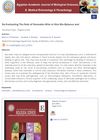 March 2022 in “Egyptian Academic Journal of Biological Sciences. E, Medical Entomology and Parasitology”
March 2022 in “Egyptian Academic Journal of Biological Sciences. E, Medical Entomology and Parasitology” Demodex mites might help skin balance by eating bacteria, but their role in skin disorders is unclear and may involve other factors.
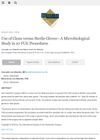 January 2019 in “Hair transplant forum international”
January 2019 in “Hair transplant forum international” Clean and sterile gloves showed no difference in scalp contamination during hair transplant surgery.
 April 2018 in “Journal of Investigative Dermatology”
April 2018 in “Journal of Investigative Dermatology” STIM1 is essential for sweat secretion.
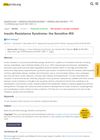
Insulin resistance is linked to many health problems and is influenced by diet, genetics, and other factors.
 306 citations,
April 2019 in “International Journal of Molecular Sciences”
306 citations,
April 2019 in “International Journal of Molecular Sciences” The skin has a complex immune system that is essential for protection and healing, requiring more research for better wound treatment.
48 citations,
May 2018 in “Expert Opinion on Therapeutic Targets” Gut health may influence Alopecia Areata, suggesting new treatments.























